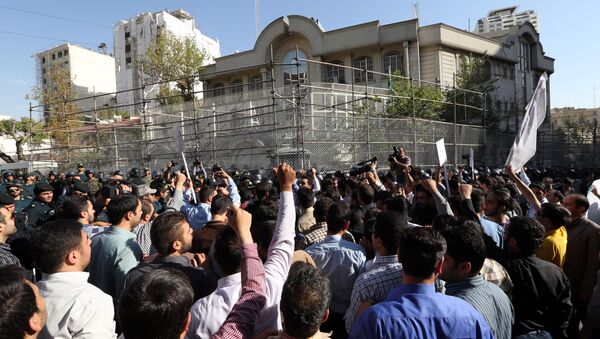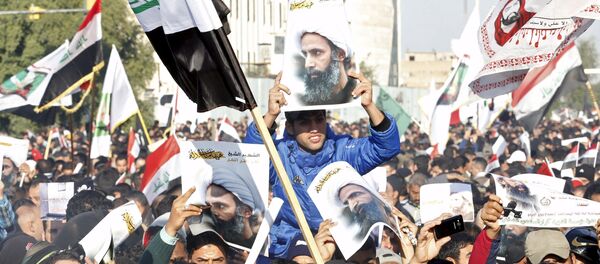MOSCOW (Sputnik) — Saudi Arabia executed a prominent Shiite cleric on Saturday, sparking protests in Iran where an outraged mob set fire to two Saudi diplomatic missions. This prompted the Sunni monarchy to cut ties with Tehran.
"There is no prospect of a conventional war between Iran and Saudi Arabia directly, but both have allies and proxies all over the region," Thomas Lippman, an award-winning author and journalist specializing in Middle East Affairs, told Sputnik.
Lippman said the blame for the dispute, which has sent ripples across the Middle East, was on both sides. Saudis knew that Sheikh Nimr al-Nimr’s death would reinforce resentment in the monarchy’s Shiite community, while Iran should have thought better of warning Riyadh against the execution.
"The Iranians probably sealed his [Nimr's] fate. And they made life more difficult for their Shia compatriots in Saudi Arabia, because Iran's actions will augment Saudi suspicion that the Saudi Shiites are complicit with Iran," he said.
But he stressed that the diplomatic breakdown between Saudis and Iranians was "more reflection rather than a driver of the souring situation."
Mehrzad Boroujerdi, chair of the political science department at Syracuse University's Maxwell School of Citizenship and Public Affairs, agreed that Riyadh had been in favor of cutting ties with Iran prior to the embassy attack.
"The attack on the Saudi Embassy provided a good justification for the Saudis to sever all ties," he said. "Saudis will coordinate with any other Arab states to cut or downgrade diplomatic relations with Iran."
He also predicted more attacks both on Shiite and Sunni communities in the region in the coming months as other countries line up along sectarian lines.
Iran and Saudi Arabia are respectively the main Shiite and Sunni powers in the Middle East. Sudan and Bahrain, a tiny Sunni-led monarchy with a majority Shiite population, broke off ties with Iran hours after Saudi Arabia, while the United Arab Emirates and Kuwait downgraded theirs.


